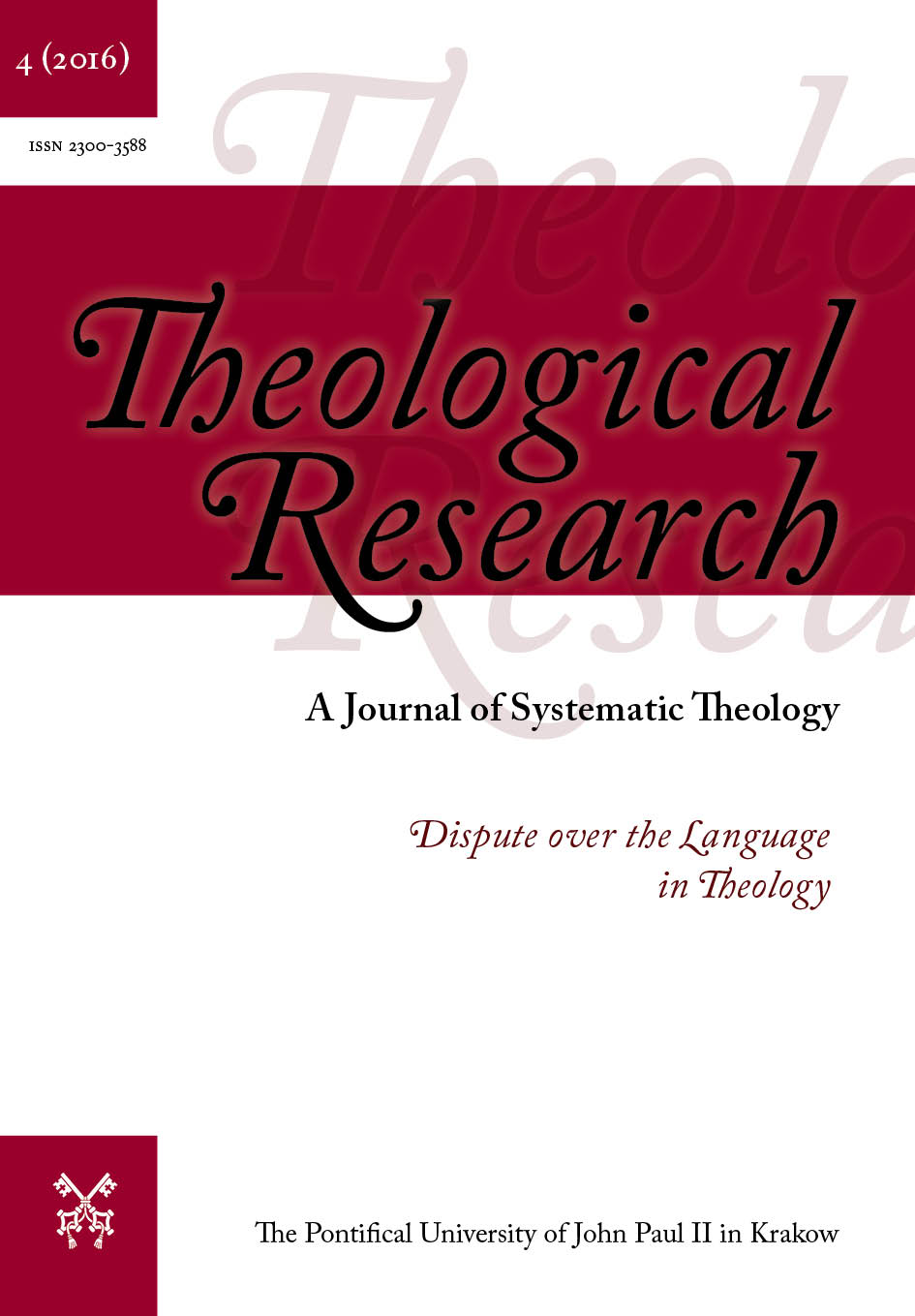Between Similarity and Non-similarity. The Nature of Theological Language in the Thought of Peter Abelard
DOI:
https://doi.org/10.15633/thr.2372Keywords:
abelard, faith and reason, theory of similarities, hermeneutics, theological language, theological methodAbstract
the aim of this paper is to answer to the following question: How should theological propositions, originating from the language used to describe creatures, be understood so as to avoid idolatry, that is reducing God to the category of contingent entities?Using the theory of similarities formulated by Peter Abelard, I pointed out that the risk of committing theological errors decreases when language formulas are treated as models, and their meaning is understood in a figurative way. Such an attitude enables us to acknowledge the fact that language can be only partially adequate to the subject under discussion, and makes us aware that we describe only one aspect of a given theological phenomenon, as the chosen model may not correspond to other aspects.
Such understanding of the theological language calls for a constant reinterpretation of theological propositions. If images used in theology are linked to the structure of the world, each change in the scientific understanding of this structure brought by empirical sciences, should lead to changes in the language used by theology. Lack of such changes in the system of religious beliefs will lead to a decrease in the credibility of theology and push its truths towards the category of myths and fables.
References
Abelard P., Ethical Writings: Ethics and Dialogue between a Philopher, a Jew, and a Christian, trans. P. V. Spade, Indianapolis 1995.
Abelard P., Theologia Christiana, in: E. M. Buytaert (ed.), Petri Abaelardi opera theologica, II, Turnhout 1969 (Corpus Christianorum. Continuatio Mediaevalis, 12).
Abelard P., Theologia Scholarium, in: E. M. Buytaert, C. J. Mews (eds.), Petri Abaelardi opera theologica, III, Turnhout 1987 (Corpus Christianorum. Continuatio Mediaevalis, 13).
Bonanni S. P., Parlare della Trinità. Lettura della „Theologia Scholarium” di Abelardo, Roma 1996.
Brower J. E., Trinity, in: J. E. Brower, K. Guilfoy (eds.), The Cambridge Companion to Abelard, Cambridge 2004, p. 223–257.
Buytaert E. M., Abelard’s Trinitarian Doctrine, in: E. M. Buytaert (ed.), Peter Abelard. Proceedings of the International Conference. Louvain, May 10-12, 1971, Leuven 1974, p. 127–152.
Chenu M. D., La teologia nel dodicesimo secolo, Milano 1999.
Evans G. R., The Language and the Logic of the Bible: the Earlier Middle Ages, Cambridge 1984.
Harris S., The End of Faith: Religion, Terror, and the Future of Reason, New York 2005.
Różycki I., Doctrina Petri Abaelardi de Trinitate. Vol. II: De Mysterio SS. Trinitatis, Poznań 1939.
Tweedale M. M., Abailard on Universals, Amsterdam 1976.
Wąsek D., Peter Abelard’s Concept of Theology, Kraków 2010.
Downloads
Published
Issue
Section
License
Autrzy publikujący w czasopiśmie "Theological Research" zgadzają się na następujące zasady:
a. Autorzy przenoszą na rzecz Uniwersytetu Jana Pawła II w Krakowie (UPJPII) autorskie prawa majątkowe do swoich tekstów.
b. UPJPII udostępnia teksty na platformie wydawniczej, na licencji Creative Commons Uznanie autorstwa-Użycie niekomercyjne-Bez utworów zależnych 3.0 Polska, która umożliwia ich pobieranie i udostępnianie (np. w repozytoriach naukowych), o ile zostaną spełnione warunki:
- podany autor i tytuł tekstu,
- podane miejsce publikacji (tytuł czasopisma i adres internetowy do oryginalnie opublikowanego tekstu),
- tekst będzie dystrybuowany w sposób niekomercyjny.

